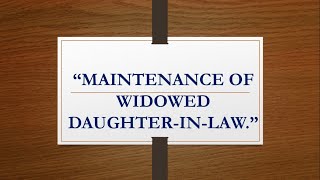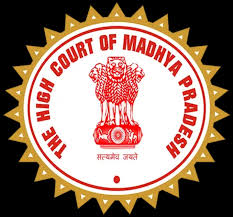Tarun Chatterjee, J.@mdashBy consent of parties, this appeal is treated as on day''s list and is disposed of by the following judgment.
2. Late Amiya Kisku who was originally a scheduled tribe but, subsequently converted to Christianity executed a will in respect of his properties left by him. The Plaintiff/Appellant for grant of probate of the said will filed a suit being other suit No. 35 of 1995 before the Additional District Judge, 6th Court at Midnapore. In that suit, the Respondent Anjali, daughter of Amiya Kisku entered appearance and was contesting the grant of probate. After entering appearance she filed a petition stating that since late Amiya Kisku belonged to Scheduled Tribe, the transfer of properties of late Amiya Kisku by a will to a non-Scheduled Tribe was void in view of Section 14(B) and Section 14(C) of the West Bengal Land Reforms Act, 1955 (herein after referred to as ''the Act''). The Trial Court allowed the said petition filed by the Respondent Smt. Anjali Das and the suit for grant of probate of the alleged will of late Amiya Kisku was found to be not maintainable and hit under Sections 14(B) and 14(C) of the Act and accordingly, the suit was dismissed. Feeling aggrieved by this judgment and decree of the Trial Court, the present appeal has been preferred by the Plaintiff/Appellant.
3. We have heard Mr. Dutta, appearing on behalf of the Plaintiff/Appellant and Mr. Amal Baran Chatterjee for the Respondent. From a perusal of the judgment under appeal, it appears that the Trial Court mainly relied on a Single Bench decision of this Court in the case of
a).... (Not required)
b).... (Not required)
c).... (Not required)
cc).... (Not required)
d) By gift or will to a person belonging to a scheduled tribe.
4. Therefore, from the aforesaid provisions u/s 14(C) of the Act, it can very well be said that a raiyat belonging to a Scheduled tribe may transfer his holding by a will to a person belonging to a scheduled tribe. That is to say a scheduled tribe may transfer his holding by a will only to a person belonging to a scheduled tribe. However, there is a proviso to Section 14(C) of the Act which says that any raiyat belonging to a scheduled tribe may with the previous permission in writing of the Revenue Officer transfer of sale his holding or any part thereof to a person not belonging to scheduled tribe. Therefore, from the proviso to Section 14(C) of the Act, it is clear that in case of transfer by sale of a holding of a scheduled tribe, the transfer can be effected in favour of a non-scheduled tribe with the previous permission of the Revenue Officer concerned. We need not deal with this proviso any further in view of the fact that we are only concerned with a case where the transfer effected by a scheduled tribe by executing a will is at issue. From a conjoint reading of the aforesaid provisions of the Act, it can, therefore, be concluded that all transfers of land by a raiyat belonging to a scheduled tribe shall be void subject to the exception indicated in Section 14(C) of the Act. As noted herein earlier, the Trial Court dismissed the suit of the Plaintiff/Appellant only on an assumption that since late Amiya Kisku was originally a raiyat belonging to a scheduled tribe. Although he embraced Christiamty subsequently, he did not cease to be a member of the scheduled tribe. Therefore, the Trial Court held that in view of the bar imposed under Sections 14(B) and 14(C) of the Act and the Plaintiff/Appellant being a person not belonging to a scheduled tribe, transfer by way of a will would be void.
5. Therefore, from a perusal of the judgment under appeal, it is evident that the Trial Court dismissed the suit of the Plaintiff/Appellant on two grounds. First, as noted herein earlier, the Trial Court held that late Amiya Kisku could not cease to be a member of the community of scheduled tribe although he embraced christanity. Secondly, the Trial Court proceeded on the basis that admittedly, the Plaintiff/Appellant was a non-scheduled tribe. So far as the question of Plaintiff/Appellant being a non-scheduled tribe tribe is concerned, we are unable to hold at this stage that the Plaintiff/Appellant was a non-scheduled tribe before any evidence to that effect is recorded by the Court. Therefore, in our view, the Trial Court was not justified in entertaining an application filed before it by the Defendant/Respondent to dismiss the suit on the ground that in view of the bar imposed under Sections 14(B) and 14(C) of the Act, the transfer of property by late Amiya Kisku by executing a will in favour of the Appellant cannot arise at this stage.
6. As noted herein earlier only on an application filed by the Defendant/Respondent, such a view was taken by the Trial Court. Therefore, we are prima facie of the view that the aforesaid Single Bench decision on which the Trial Court made reliance could not be relied by it at the stage the suit was dismissed. In any view of the matter, the Single Bench decision Supra of this Court could not be relied on in view of a subsequent decision of the Supreme Court in the case of
It cannot, therefore, be laid down as an absolute rule uniformaly applicable in all cases that whenever a member of a caste is converted from Hinduism to Christanity, he loses his membership of the caste. It is true that ordinarily on conversion of Christanity, he would cease to be a member of the caste, but that is not an invariable rule. It would depend on the structure of the caste and its rules and regulations. There are castes, particularly in South India, where this consequence does not follow on conversion, since such castes comprise both Hindus, and Christians. Whether Adi Dravida is a caste which falls within this category or not is a question which would have to be determined on the evidence in this case. There is on the record evidence of Kakkan (P.W. 13), S.C. Adimoolam (RW 1) and K.P. Arumugam (RW8), the last two being witnesses examined on behalf of the Appellant, which shows that amongst Adi Drividas, there are both Hindus and Christians and there are inter-marriages between them. It would, therefore, prima facie seem that on conversion to Christianity, the 1st Respondent did not cease to belong to Adi Dravida caste. But in the view we are taking as regards the last contention, we do not think it necessary to express any final opinion on this point.
7. From the above observation of the Supreme Court, it is, therefore, clear that a Court cannot lay down as an absolute rule uniformly applicable in all cases that whenever a member of a caste is converted from Hinduism to Christanity, he loses his membership of the caste and it would depend on the structure of the caste and its rules and regulations. Such being the position, without evidence having been recorded by the parties on the aforesaid question, it was not open to the Trial Court to decide as late Amiya Kisku had embraced christanity he would still remain a member of the scheduled tribe community. For decision on this question parties are to lead evidence and only after taking evidence, the Court can reasonably come to a conclusion whether by embracing Christanity, late Amiya Kisku had ceased to be a member of the scheduled tribe community or still he remained a member of the said community although he embraced Christanity for a long time. For this purpose, the Court has to frame an issue and thereafter, permit the parties to adduce evidence and only thereafter this question can be decided finally, m this case, admittedly no issue has been framed nor any evidence has been taken by the Court on the aforesaid question. Therefore, even assuming that all preliminary issue of law can be decided by Court at this stage, but in view of the admitted fact that no evidence was recorded on the aforesaid question at issue, the procedure adopted by the Trial Court was irregular and invalid in law. That apart, there is another aspect of the matter.
8. A question may arise when the bar imposed under Sections 14(B) and 14(C) of the Act could be applied in a probate proceeding. The instant suit has been filed for grant of probate of a will executed by late Amiya Kisku. Therefore, the other question that needs to be decided in the present suit is whether the alleged will of late Amiya Kisku was genuine or not. Therefore, in a proceeding for grant of probate, the applicability of the provisions of Sections 14(B) and 14(C) of the Act may not arise at all. Only after the probate is granted, the question that shall arise is whether transfer could be effected in favour of the Plaintiff/Appellant by executing a will in view of bar imposed in Section 14(C) of the Act. In our view, in a probate proceeding it is not the function of the probate court to go into the question of title of the testator, in respect of the property of which the will purports to be disposed of or purports to the validity of such disposition. In our view, this aspect of the matter was not at all taken into consideration by the Trial Court and accordingly, the Trial Court has acted illegally and in excess of its jurisdiction vested to it by deciding the matter whether under Sections 14(B) and 14(C) of the Act, the alleged will was null and void or not.
9. For the reasons aforesaid, we are unable to agree with the view expressed by the Trial Court and accordingly, the judgment and decree of the Trial Court is set aside and the suit must be remitted back to the Trial Court to frame issues and decide the suit after permitting the parties to adduce evidence and dispose of the same within six months from the date of communication of this order without granting any unnecessary adjournment to either of the parties.
10. Before, we part with this judgment we make it clear that whatever findings or observations have been made in this judgment cannot be construed to be a final decision on the question discussed above and it will be open to the Trial Court after framing issue and after permitting parties to adduce evidence to decide the question as mentioned above without being influenced by any of the observations made herein above.
11. Accordingly, the appeal is allowed to the extent indicated above.
12. There will be no order as to costs.
13. In view of the above judgment passed in this appeal, all the interlocutory applications have become infructuous and they are also disposed of without any order as to costs.
14. Office is directed to send copy of this judgment to the Trial Court as early as possible preferably within two weeks from date.
Amit Talukdar, J.
15. I agree.

